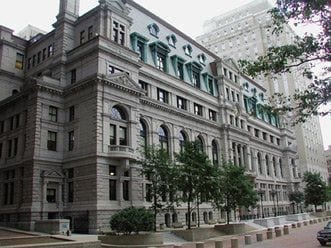
August 20, 2017
SJC considers when abandoned immigrant children can get legal status
BOSTON — If a child immigrant enters the U.S. without legal status, and has been abandoned or abused by their parents, the child can apply for permanent legal status.
This allows the child to remain in the U.S. if their parents are deported or if their parents never came to the U.S. Essentially, it lets a child stay in the U.S. with a state-appointed guardian if that is in the child's best interest.
Before the U.S. immigration service grants legal status, a state court must make a child welfare finding under state law. The Supreme Judicial Court will consider two cases on Friday regarding what standards Massachusetts courts should apply.
"The state courts are not being asked to make immigration decisions," said Mary Ryan, an attorney with Nutter, McClennen & Fish who represents a group of immigration lawyers and legal defense organizations that filed amicus briefs in the cases. "These are child welfare cases, part and parcel of the entire body of law we have in Massachusetts that protects the welfare of children."
Federal law allows a child to be granted legal status when a court determines the child is dependent on the state, that reunification with one or both parents is not viable due to abuse, neglect or abandonment, and that it would not be in the child's best interest return to their previous country. The SJC cases will help clarify when exactly a child immigrant is eligible to remain in the U.S.
In one case, a 7-year-old Guatemalan girl, referred to as E.G., was allegedly abandoned by her father, Manuel Morales Lopez. The state of Massachusetts, on behalf of the child's mother, asked that E.G. be granted legal status on the grounds that Lopez abandoned her. The state argued that E.G. would be better cared for by her mother in the U.S. than by relatives in Guatemala, who neglected and injured her.
The juvenile court denied the motion, apparently on the grounds that E.G. lived with her mother. The records of the juvenile case are sealed. The SJC will consider whether a child must be abandoned or neglected by both parents or just by one to become eligible for legal status.
In another case, Marvin Humberto Penate asked for guardianship of his niece, Y.P., a 17-year-old El Salvador native, on the grounds that her mother could not provide essential care and neglected to protect her from gang threats. The case was dismissed because Y.P. was almost 18, but Y.P. filed a separate suit arguing that she was eligible for legal status because her father abandoned her before birth. The SJC will consider what defines neglect. The court may also consider how to define reunification.
More than a dozen advocacy organizations involved in immigration law — including the Massachusetts Law Reform Institute, the Central West Justice Center, Catholic Charities, the American Immigration Lawyers Association and others — are urging the SJC to provide both children with legal status and to interpret the law more loosely.
The U.S. Department of Justice, which intervened in E.G.'s case, argued that the SJC should not be considering the question at all, since the interpretation of immigration law should be left to federal authorities.
The SJC should limit itself to making child welfare determinations under state law, Justice lawyers wrote in their court brief. The question of whether a child must be abandoned by one or both parents is up to federal interpretation.
Ryan, who co-chairs an American Bar Association committee on unaccompanied minors, said there were 59,000 unaccompanied minors who crossed the border into the U.S. last year, many from Central America and Mexico. Often these children face horrible conditions in their home countries, and their families pay someone, sometimes referred to as a "coyote," to smuggle them across the border. Sometimes children have no parent caring for them in their home country, or they are being threatened by gangs.
"The law is that when a child has been deprived of the opportunity to thrive … they were abused, abandoned or neglected, we here in America will provide special immigration status for those children," Ryan said.
Some of the children affected by the SJC cases may have some form of temporary legal status, although not permanent status.
Elizabeth Badger, an attorney for Kids in Need of Defense who also represents the immigrant advocacy groups, said the importance of the cases is that they will provide guidance for the lower courts on how to make child welfare determinations that may allow children to remain with a stable caretaker in Massachusetts.
Source:masslive.com
